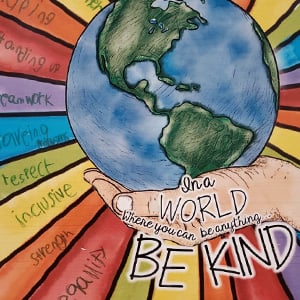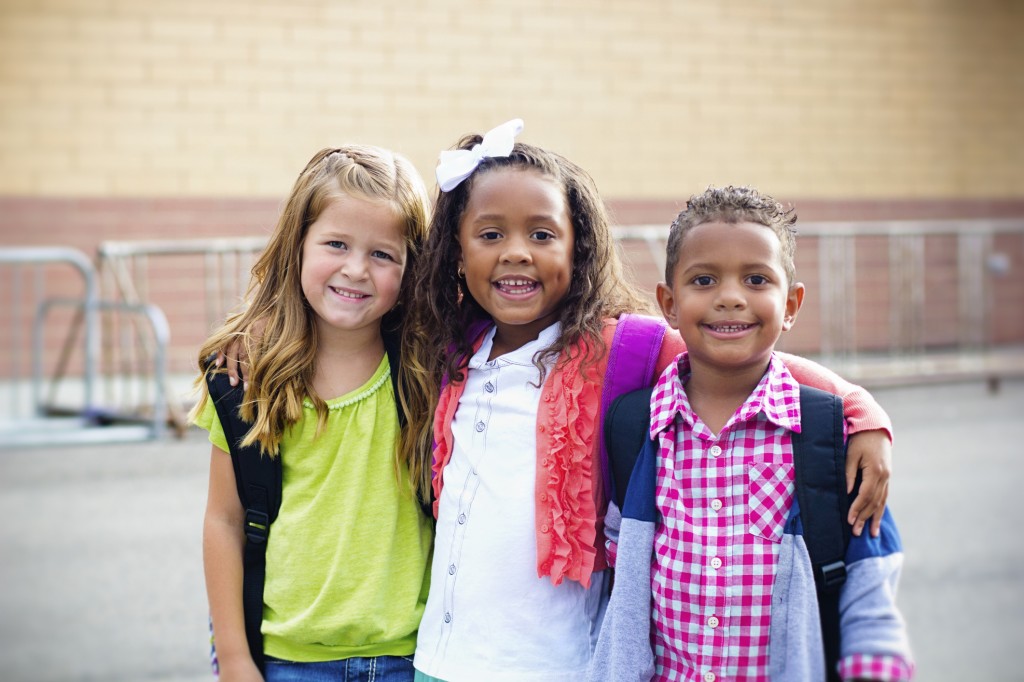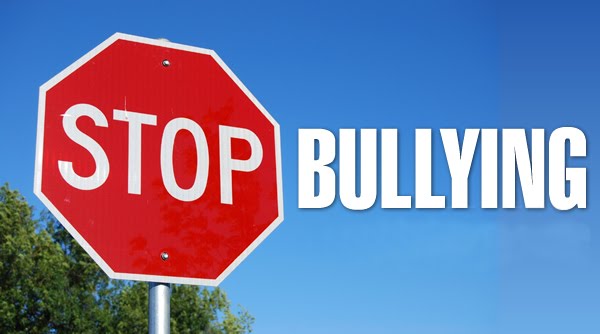Building up your child’s self-esteem is paramount to bullying prevention. When we help our children recognize and feel proud of, their accomplishments, we help teach them their worth. Over time, we can help him or her recognize how their strengths contribute to those around them, teaching them in turn how to repay that support to their peers. When a child is so busy focusing on their skills and cultivating new ones, they don’t have time to be a bully to others- they are busy improving themselves! Here are some easy ways to begin building your child’s self-esteem:
Continue readingCategory Archives: Prevention
Your Child Can Help Prevent Bullying, Here’s How | Corona, CA
Believe it or not, you can teach your child how to be an effective and empathetic support to their peers experiencing bullying. Here are five ways you can foster the notion within your child that he or she can be a champion for change and help prevent bullying.
- Communication starts in the home. Bullying can be a difficult topic to bring up with your child, but if you establish a foundation of trust with your child, they will be more likely to share their positive and negative experiences at school. When you make them feel safe and heard, they may begin to make their peers feel that way in kind.
2. Being a safe bystander. When children witness bullying, it can affect them too, even if they don’t directly engage in the situation. Help your child understand how he or she can help their classmate by offering to listen to their feelings or tell a teacher what’s going on, without getting directly involved.
3. Respond intentionally to conversations around bullying. When your child brings bullying to your attention, you can help them learn how they should respond, by being intentional with your response. Listen to him or her, ask questions that illicit a thoughtful response, and try to share how you feel he or she can act the next time they experience something similar.
4. Raise awareness. If your child is consistently sharing instances of bullying, share with him or her the ways they can safely take action, and reach out to adults closer to the situation to inform them of what you are being told. Raising awareness in your child about how to react, and within your community about the issue, is more likely to solve problems that prevent future bullying.
Visit StopBullying.gov for more helpful tips on how to prevent bullying, and have a great school year!
If you would like to learn more about bullying, contact Simple Acts of Care and Kindness at 866-459-7225 or visit www.simpleacts.org for additional information.
Helping Kids Understand Compassion | Corona, CA
As school terms come to a close and summer begins to set in, we feel it is important to share some ways you can help your kids better understand what it means to be compassionate.
Children watch and learn many things both consciously and unconsciously. They observe our behavior, that of their teachers, their fellow classmates, and people they admire. If you are a parent helping a friend through a difficult time, invite your child to sit with you as you prepare a gift basket, or ask their opinion on what to write in a get-well card. Including your child in these scenarios will allow them to ask questions and feel like they are contributing. It will also tonight curiosity and allow opportunities for you to share your values, or otherwise teach them compassionate behaviors.
Another thing we can do is when they arrive home from school, ask questions beyond “What did you learn today”, by asking questions that make them consider their friend’s experiences. Instead of “Did you perform well” you could ask “How did that lesson make you feel” or “How did your friend feel when you said or did that today”. This invites them to consider their own feelings and the feelings they witnessed their friend experience. If their reactions to similar circumstances differ when they pertain to themselves versus their peers, see it as an opportunity to teach them that all people are equal, and their feelings should be just as valid as their own.
These are two ways we can begin to incorporate higher-level thinking into our children’s consideration of their daily lives. They won’t necessarily pick up on it on their own; it’s likely they are at an age where their own human experience is the only one they consider, so invite them to consider others whenever possible to help them understand compassion, and pass it along.
If you would like to learn more about bullying, contact Simple Acts of Care and Kindness at 866-459-7225 or visit www.simpleacts.org for additional information.
Cyber Bullying: What to Look for and How to Stop It | Corona, CA

March 23, 2022 | Beau Yarbrough, Los Angeles Daily News
Most students report having been cyber bullied, but some schools have been able to reduce incidents by hiring additional counselors and creating online portals to report bullying and putting links to them everywhere.
(TNS) — Today’s kids face bullying and other dangers in two worlds, one online and the other offline.
“Parenting is parenting and digital spaces are just another place that kids hang out,” said Stephanie M. Reich, professor of education at UC Irvine.
A new Southern California News Group analysis shows that 33.5 percent of California secondary students reported being bullied or harassed in the past 12 months in an anonymous survey distributed in three-quarters of California school districts.
But the same kind of practical advice parents give their children before heading to school or a friend’s house can also protect them from cyber bullying online.
“When your kid is little and they want to go to the park, you don’t just open the door and say ‘There you go,’” Reich said.
According to a survey conducted between May and June 2021 by the Cyberbullying Research Center, 23.2 percent of children in America had been cyber bullied, with the highest numbers experienced by 15 year olds, 27.7 percent of whom had said they’d been bullied.
Cyber bullying can take many forms, from messages or social media posts intended to upset the target, online gossip, recording and posting offline bullying online, or impersonating bullying victims or creating doctored images to defame them.
In a 2018 Pew Research Center survey, 59 percent of teens surveyed said they’d experienced cyber bullying at some point.
“People always think about it as this dark shadowy thing that nobody is aware of that’s somehow different than what bullying is like,” Reich said. “But cyber bullying is a lot like in-person bullying.”
The consequences of cyber bullying, however, can be more severe than offline bullying, according to the National Institutes of Health. Cyber bullying victims are more likely to suffer from depression than those who are bullied in other ways, for example.
There are school districts in California that have much lower reported rates of bullying — some as low as one-third the statewide average. The rates are typically a result of improving school mental health climates, hiring additional counselors and implementing more robust anti-bullying policies and procedures.
More and more, school districts are taking what happens online as seriously as what happens on campus, according to Loretta Whitson, executive director of California Association of School Counselors.
“I can tell you that, many times, kids were pretty upset about being suspended when they (bullied) online, when they were at home,” she said. “But it disrupted education, and that was the rule.”
Districts with low rates of reported bullying often create online portals to report bullying and put links to them everywhere, including on students’ Chromebooks or other district-issued devices, by posting QR codes around campus and placing links on district and school websites. They also sometimes monitor how students use district devices and Internet use, flagging signs of bullying.
Jurupa Unified in Riverside County has both widespread links to the district’s bullying reporting line and uses software to flag when students visit inappropriate websites, including those dealing with drug use or self-harm.
The reporting tools have been getting a workout in the past two years.
“Since the pandemic, even during the virtual year, the actionable reports that have been put in have greatly increased,” said Monty Owens, the district’s director of educational equity.
The biggest way the districts combat cyber bullying, though, is the same way they combat it offline: By changing the school and district culture.
“One of the key characteristics of schoolyard bullying is that there’s a bunch of bystanders standing by, watching, not doing anything,” Reich said. “It’s the same in digital spaces. We want to train kids to intervene.”
That training is taking place in school districts with lower bullying rates. But Reich says there’s more work to do off school grounds to combat bullying.
“It’s really about a community that doesn’t tolerate it on the playground and they don’t tolerate it in digital spaces,” she said.
To get ahead of the issue, Reich said children should learn empathy to help prevent cyber bullying.
“If you’re empathetic, you’re not going to hurt others online and you’re less likely to tolerate it happening to other people online,” she said.
And that includes empathy for the bullies, too.
“Cyber bullies are often cyber-victims themselves,” she said.
Plus, she said, “they often have households that are not great. They have very neglectful parents or very laissez faire ones. They’re usually bullies because they’re trying to assert control.”
Reich believes parents should teach their children to be aware of the possible dangers online and how to avoid them, as well as develop trust with children so they are willing to share about things that concern or upset them.
“If you cultivate a high quality relationship with your child, you can have those conversations with them, whether it’s about digital spaces or offline,” Reich said.
With her own children, she gave her kids access to digital devices and the Internet gradually, based on their developmental stage. And just like talking about the hazards one could encounter on the way to the park, she spoke to her children about how algorithms for various social platforms shove engaging content at users without any concern about whether it’s healthy or accurate.
“We’re just trying to cultivate our kids being conscious and aware when they’re using devices,” she said.
And for parents looking for specific practical advice, the Boy Scouts — who have an online safety training course for scouts as young as first grade — have some tips:
Common types of cyber bullying
- Flaming, trolling or trash talking by sending or posting hostile messages intended to upset others
- Recording someone being harassed or bullied, then posting the video online for public viewing
- Identify theft or impersonation
- Doctored images
- Physical threats
- Spreading rumors or public shaming
Signs a child may be a victim of cyber bullying
- Avoids computer, cell phone and other devices
- Appears stressed when receiving an email, instant message or text message
- Withdraws from family and friends
- Reluctant to attend school or social events
- Avoids conversations about their computer use
- Exhibits signs of low self-esteem, including depression or fear
- Has declining grades
- Has poor eating or sleeping habits
- Acts secretive when online
What to do if your child is being cyber bullied
- Encourage your child not to respond to the bully
- Do not erase the messages or pictures, and take screenshots and save them as evidence
- Try to identify the individual doing the cyber bullying, even if the cyber bully is anonymous
- If the cyber/gaming bullying is criminal — such as threats of violence, extortion, obscene or harassing phone calls or text messages, stalking, hate crimes or child pornography — contact the police
This story is part of a 2021 Data Fellowship with the USC Annenberg Center for Health Journalism.
If you would like to learn more about random acts of kindness, contact Simple Acts of Care and Kindness at 866-459-7225 or visit www.simpleacts.org for additional information.
It’s Time the World Stands Up to Bullying | Corona, CA

When it comes to bullying, there isn’t just the bullied that is affected. Of course, the victim hurt on many different levels. But the bully is also affected – after all, hurt people hurt people. Even those that are a witness to said bullying are affected. No one likes to see someone hurting. Therefore, it is so important that we combat bullying any way we can.
In the United States alone, 20 percent of children between the ages of 12 and 18 say they have experienced some type of bullying. That is a heartbreaking statistic. But if you think of it on a global scale, one-third of the world’s youth are bullied. Those who did the bullying had more social influence, more money, or were physically stronger than the person they bullied. You see, they have this idea that they’re “better” than you. And unfortunately, it can happen at any point in time. The bullying will take place in a school cafeteria, hallway, classroom, school grounds, or bathroom. Some bullies also use texting and online platforms to target their victims.
But there is hope… In 2008, Canada celebrated the first International Stand Up to Bullying Day. It started in February, but it is celebrated twice a year. And today is that day. Schools around the world are celebrating this anti-bullying tour de force by wearing a pink shirt to spread awareness of this very important cause. Because this can’t be done by one student alone – we all need to stand up to bullying if it’s ever going to stop.
So, wear that pink shirt with pride and put your foot down against bullying.
If you would like to learn more about random acts of kindness, contact Simple Acts of Care and Kindness at 866-459-7225 or visit www.simpleacts.org for additional information.
My Big Idea: Anti-Bullying Software for the Classroom | Corona, CA

OCTOBER 12, 2022 | by ALENE BOURANOVA
It’s no secret that bullying is still prevalent in classrooms. In fact, one in five children report being bullied during their school years.
It’s also not a secret that thanks to staff shortages and budget cuts, teachers and counselors are increasingly being asked to cover more and more students, making it easier for instances of bullying to slip through the cracks.
That’s where Brave Up comes in.
The software, which Juan Ramirez (Questrom’21) and Enrique De Lima (CAS’21) helped bring to market, is aimed at students and counselors to help predict, detect, and prevent bullying and cyberbullying inside K–12 classrooms. Brave Up launched in early 2022 and is in use in 150-plus schools across both the United States and Latin America, where much of the leadership team is from.
Comprehensive anti-bullying software has been a long time coming in the education technology space, says Ramirez, Brave Up’s head of revenue and strategy. And particularly now, with students back in classrooms after COVID lockdowns and struggling to adjust to a changed social landscape.
To continue reading this article, click here.
If you would like to learn more about random acts of kindness, contact Simple Acts of Care and Kindness at 866-459-7225 or visit www.simpleacts.org for additional information.
Mississippi 10-Year-Old Writes Anti-Bullying Book | Corona, CA

By Associated Press | Aug. 27, 2022, at 1:01 a.m. By BLAKE ALSUP, Northeast Mississippi Daily Journal TUPELO, Miss. (AP) —
William Faulkner was 29 years old.
Richard Wright was 30.
John Grisham, Eudora Welty and Greg Iles were all around age 33.
But Atiya Henley was just 10 years old when she published her first book.
Atiya will enter the fifth grade at West Clay Elementary this school year, but unlike most — if not all — of her classmates, she’s already a published author.
Published in February, Atiya’s short book, “The Mean Girls: A Bunch of Bullies,” carries an anti-bullying message.
Atiya’s mother, Amy Deanes, founded West Point-based Superior Publishing in 2020. The small publishing house currently distributes the work of 13 authors; among them, Atiya’s book has been the publisher’s best seller.
According to Deanes, her daughter has always been interested in writing stories. In fact, she wrote a book titled “Black Joe” before writing “The Mean Girls.”
The idea to write this specific book came about during a conversation with her mom. Atiya was playing a game, and Deanes suggested that she create her own game or write a book that other people can experience.
Although the book isn’t based on a situation she’s personally experienced or witnessed at school, she’s seen news reports on the effects of bullying. Atiya said she wanted to do something to help make people aware of bullying in an effort to help stop it.
“I’m very passionate of others’ feelings, and I don’t like when someone gets mistreated or left out,” Atiya said.
The 34-page book took her about a month to write. Her mother both edited and illustrated it.
Atiya and her eight classmates made up the entire fourth grade class at West Clay Elementary during the 2021-22 school year. Her whole class was involved in making the book, posing as characters in photo illustrations.
“We have a very small class, so basically all of them are best friends,” Atiya said.
The school’s principal, teachers and students were overjoyed to have an active part in the book’s creation and have supported it after release as Atiya has traveled to other schools and churches promoting it.
With a head start on what could be a productive career, Atiya is already planning future publications. She plans to publish the first book she penned, “Black Joe,” in the near future, and is currently working on a sequel to “The Mean Girls” subtitled “The Silent Bullies.”
The fifth grader has no intentions of putting down her proverbial pen. As an adult, she hopes to be an author and a real estate agent.
At just 10 years old, she’s already halfway there.
If you would like to learn more about random acts of kindness, contact Simple Acts of Care and Kindness at 866-459-7225 or visit www.simpleacts.org for additional information.
A Catchy Tune with an Anti-Bullying Message | Corona, CA
An anti-bullying song is one of the tracks on the new album “Hazel Eyes” by local Hawaiian band Kolohe Kai. The song was used as part of the Hawaiʻi Department of Health’s Children’s Mental Health Acceptance Week campaign earlier this year.
Lead singer Roman De Peralta wrote the track “I Think You’re Beautiful,” and describes it as an uplifting song with an empowering message. The Conversation sat down with De Peralta to discuss the inspiration behind the music.
If you would like to learn more about random acts of kindness, contact Simple Acts of Care and Kindness at 866-459-7225 or visit www.simpleacts.org for additional information.
School Attributes Anti-Bullying Setting for Student Success | Corona, CA

Hidden Treasure Christian School wants to make mission more visible
By Myra Ruiz | Published: Apr. 27, 2022 at 5:00 PM PDT
TAYLORS, S.C. (FOX Carolina) – When John Vaughn, then a minister at Faith Baptist Church, started Hidden Treasure Christian School, he had his daughter’s best interests in mind.
“My dad didn’t want me in the public school system because other children would make fun of me and I would not learn about God,” Becky Vaughn told FOX Carolina.
On May 20, 1978, a house fire left Vaughn with third-degree burns on 95 percent of her body. Her mother, Brenda Vaughn, also survived the fire with third-degree burns to 65 percent of her body.
Not only did the pastor want a bully-free and academically-fulfilling education for his daughter but also one that would instill Christian values. Vaughn said she is grateful for the education she received.
“It helped me to have a biblical perspective to know that God had a purpose and a plan for my life,” Vaughn said.
When the school opened in 1981, its only two students were Vaughn and a 13-year-old girl with Down Syndrome. The next year, enrollment doubled and then kept growing in subsequent years. Today there are 60 students at the school – each diagnosed with a special need that may be physical, emotional, mental, intellectual or a combination of any of these.
“Bullying has not been an issue here and we pray it never will be,” Dr. Carl Herbster, Hidden Treasure Administrator, told FOX Carolina. “We’re here to help parents raise their children in a way that would accomplish the greatest potential for that young person.”
Hidden Treasure customizes each student’s curriculum to fit individual needs. The low student-to-teacher ratio and special attention given to each pupil’s learning process have led families from other states to choose Hidden Treasure.
Veronica Smith moved from Atlanta. After touring the school, she realized that Hidden Treasure would be the best place for her 16-year-old daughter, Teagan, who is considered low-verbal.
“I love the school,” Smith said. “Her reading has improved. Her math has improved. Her writing has improved. Her confidence in herself has improved.”
The yearly tuition at Hidden Treasure is $21,000. As a private school, it does not receive any state or federal funding. The school raises money for scholarships, so families aren’t excluded due to financial need.
“We don’t want (Hidden Treasure) as a ministry be a hidden treasure,” Herbster said. “We want to develop the hidden treasure in every young person that comes to us.”
Copyright 2022 WHNS. All rights reserved.
If you would like to learn more about random acts of kindness, contact Simple Acts of Care and Kindness at 866-459-7225 or visit www.simpleacts.org for additional information.
Random Acts of Kindness Day Should Be Year-Round | Corona, CA

Have you ever had someone randomly do something nice for you? Have you ever done something nice for someone out of the blue? It’s one of those simple ways you can brighten not only someone else’s day, but your day as well. There’s just something about making someone happy that can make your insides feel nice.
February 17th is known as National Act of Kindness Day. Sure, doing something nice for someone can, and should, happen every day of the year. But it’s a holiday that was created in New Zealand by Josh de Jong that has spread across the globe. And for good reason – taking a moment to think about someone else is something the world needs, especially after the rough time we’ve all had dealing with the pandemic and its aftereffects. In fact, the Random Acts of Kindness Foundation celebrates a whole week (February 13 – 19, 2022) because they believe in kindness and dedicated themselves to providing resources and tools that encourage acts of kindness.
So, what are you going to do to celebrate this very kind holiday? The effort can be as simple as a smile to a stranger – smiles go a long way for someone that is feeling blue. It isn’t a monetary thing; the point is to give someone the “warm and cozies” by your unexpected gesture. If you want to jazz up your good deed ideas, here’s a quick list:
- Pay for the coffee or meal of the person in front of you in line.
- Leave a kind note for someone.
- Share words of encouragement.
- Drop off some groceries at the local food pantry.
- Mail a “thinking of you” card to someone you’ve not to talk to in a while.
If you would like to learn more about random acts of kindness, contact Simple Acts of Care and Kindness at 866-459-7225 or visit www.simpleacts.org for additional information.
